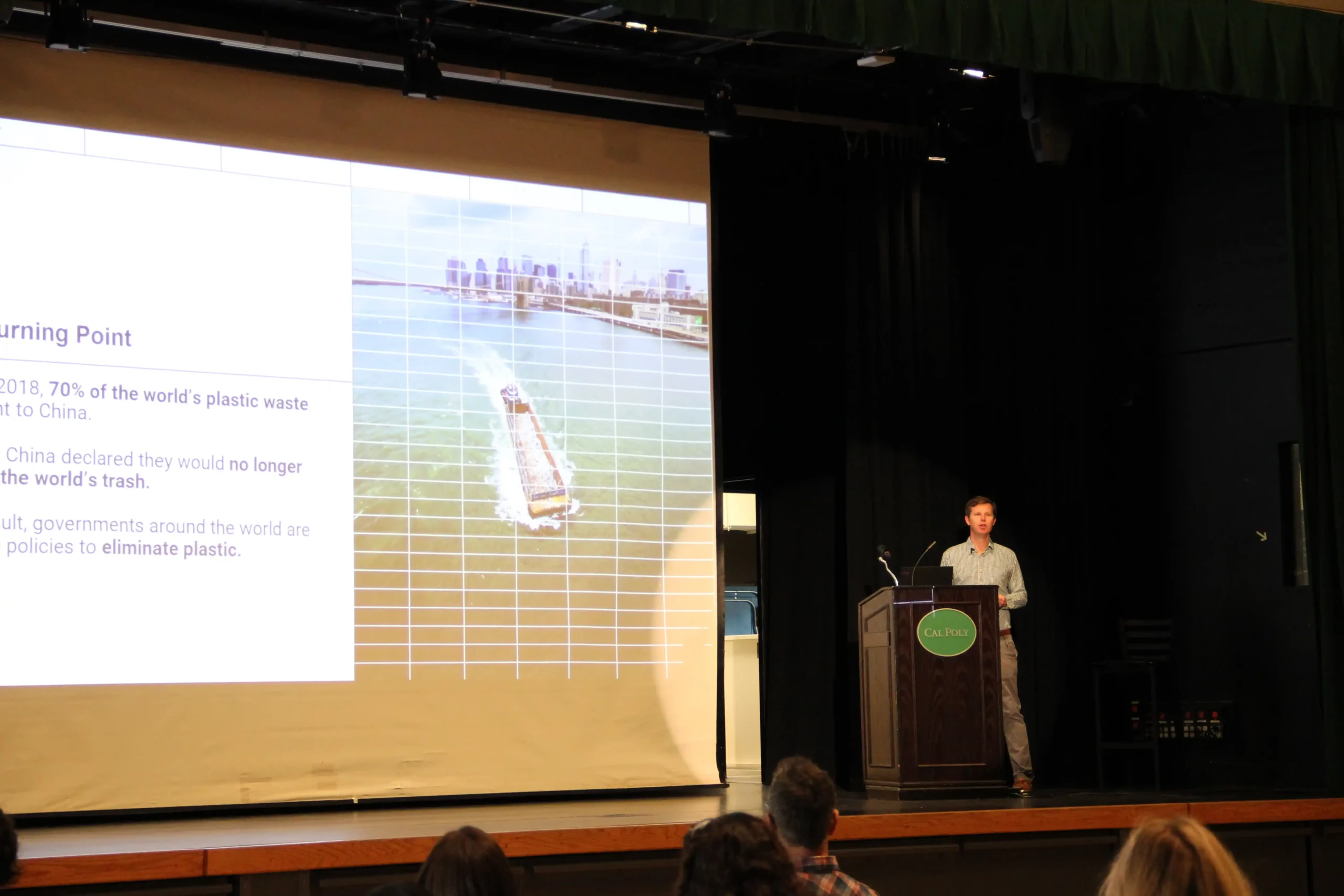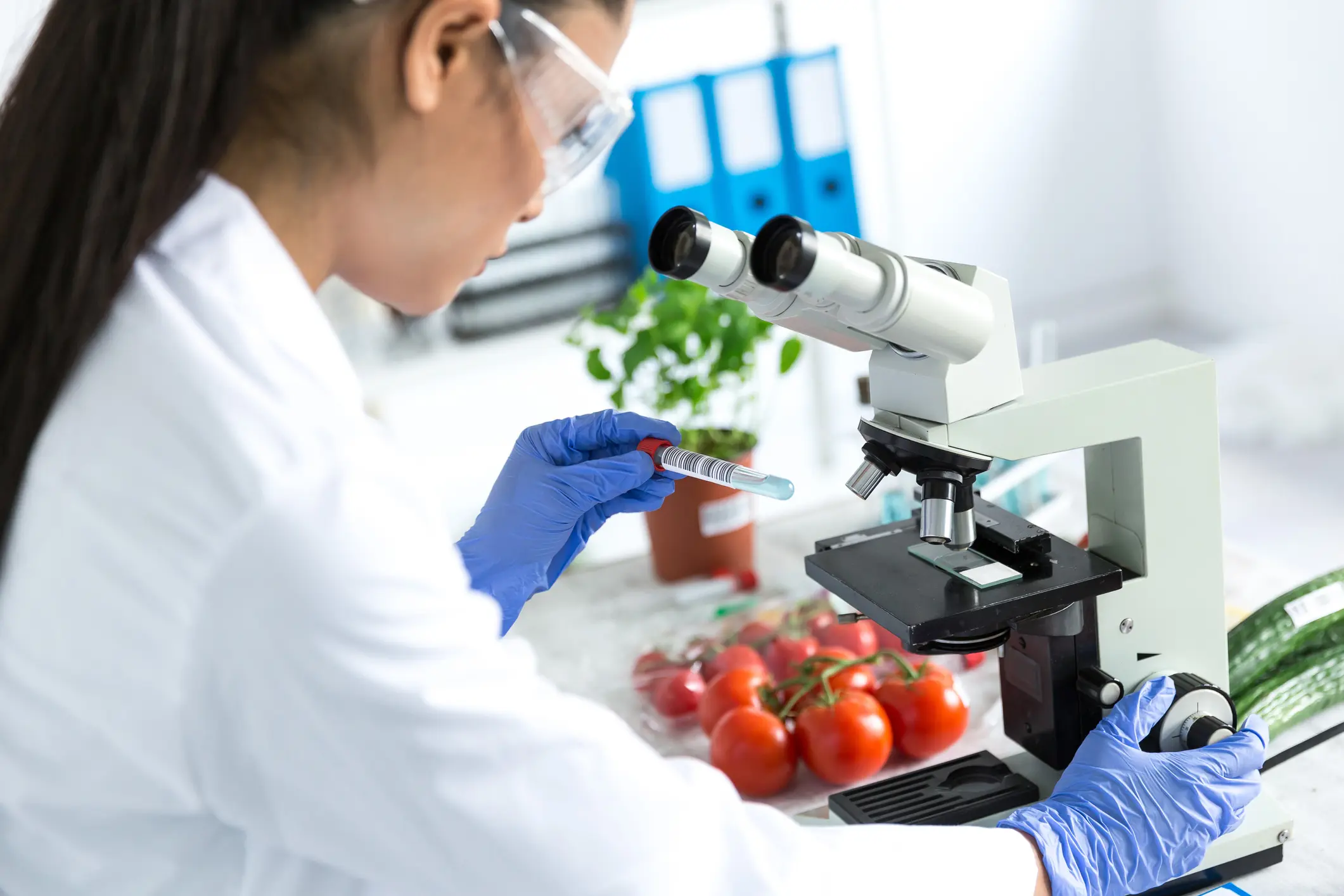Sustainability continues to be at the forefront of so many packaging industry events. We focused on sustainable packaging strategies at the Specification Management Summit back in January, and just last month I attended the 10th annual Cal Poly Poly Pack Symposium where it also took center stage.
Attendees, mostly from product and packaging fields, came together to learn more about the challenges around sustainability, including new and ever-changing regulatory pressures and sustainable packaging commitment timelines that are fast approaching.
An Ecosystem Approach to Sustainability
An overarching messaging from several presenters was that there needs to be non-competitive discussions around how to best tackle sustainability. When it comes to sustainable packaging, we all have to be working toward the same goals, not competing against each other. There is no one tool or partner that can tackle your sustainability challenges.
At Specright, that’s why we promote an ecosystem approach to digital transformation. Whether it’s partnering with academia programs, like Cal Poly, to train the workforce of the future on a digitized approach to specification management, or partnering with companies like Trayak and Lorax EPI, who are helping to drive a more sustainable future.
Data is Key to Making Sustainability Goals a Reality
At Symposium, It was great to also see data as a common thread throughout the conference. You cannot achieve sustainability goals without a strong data foundation. Specifically, specification data, which is critical for reporting and capturing baselines to meet sustainability commitments.
Cassidy DeSchryver, Director of Sustainable Packaging and Development at L’Oreal, presented on their relationship with the Ellen MacArthur Foundation. In fact, their sustainability goals fully align with the foundation on creating a circular economy. L’Oreal’s overarching goals are to use all reusable or recyclable plastics by 2025, reduce the weight of their plastics, and reduce overall plastic use. In order to achieve these broad goals the company shared 26 detailed goals to get to these overarching goals. Defining clear steps and benchmarks are key for making progress. Otherwise, goals can be too broad to see any real action or movement.
Jay Crespo and Brent Nelson from Meta, presented at the Symposium about what defines plastics in packaging and the complexities of plastic regulations like the UK Plastics Tax, EU Single Use Plastics Directive and US plastics packaging legislation. It’s legislation like these that are driving the urgency for change across the packaging industry.
It’s important to remember, not all plastics are necessarily “bad” but using the right types of materials and the right amounts of materials can make all the difference in your sustainability goals. Reaching alignment across industry on “good vs. bad” plastics is key in establishing a holistic approach to more sustainable plastic packaging. It was great to see agreement among presenters and attendees on this strategy.
And, while plastic usage was a priority topic at the event, many presenters also touched on the importance of carbon emissions education. Consumers have been historically focused on plastics, but more and more attention around carbon emissions (Scope 1, 2, and 3) is coming. Companies need to be prepared to include carbon emission reduction into their sustainability strategy.
Driving Sustainability and Profitability
Our very own Adam Armstong, VP of Strategic Partnerships at Specright, also took the stage to share how we feel you can drive sustainability and profitability. It’s not a one or the other option anymore. There are misconceptions that sustainable materials are often more expensive than other materials. This is not always the case. And, if you’re using data to make more information decisions across an entire product life cycle, your business can optimize and innovate much easier.
As a Cal Poly graduate it’s always good to be back to campus, but it was extremely rewarding to attend Poly Pack this year because of the focus on sustainability. At Specright, we are working with customers every day to make their sustainability goals a reality through a spec-first approach.
Explore More Blogs
Get Started
With Specright’s Solution Suite, you can digitize, centralize, and link your specification data to drive efficiencies, intelligence, traceability, and collaboration within your organization and across your supply chain network.




